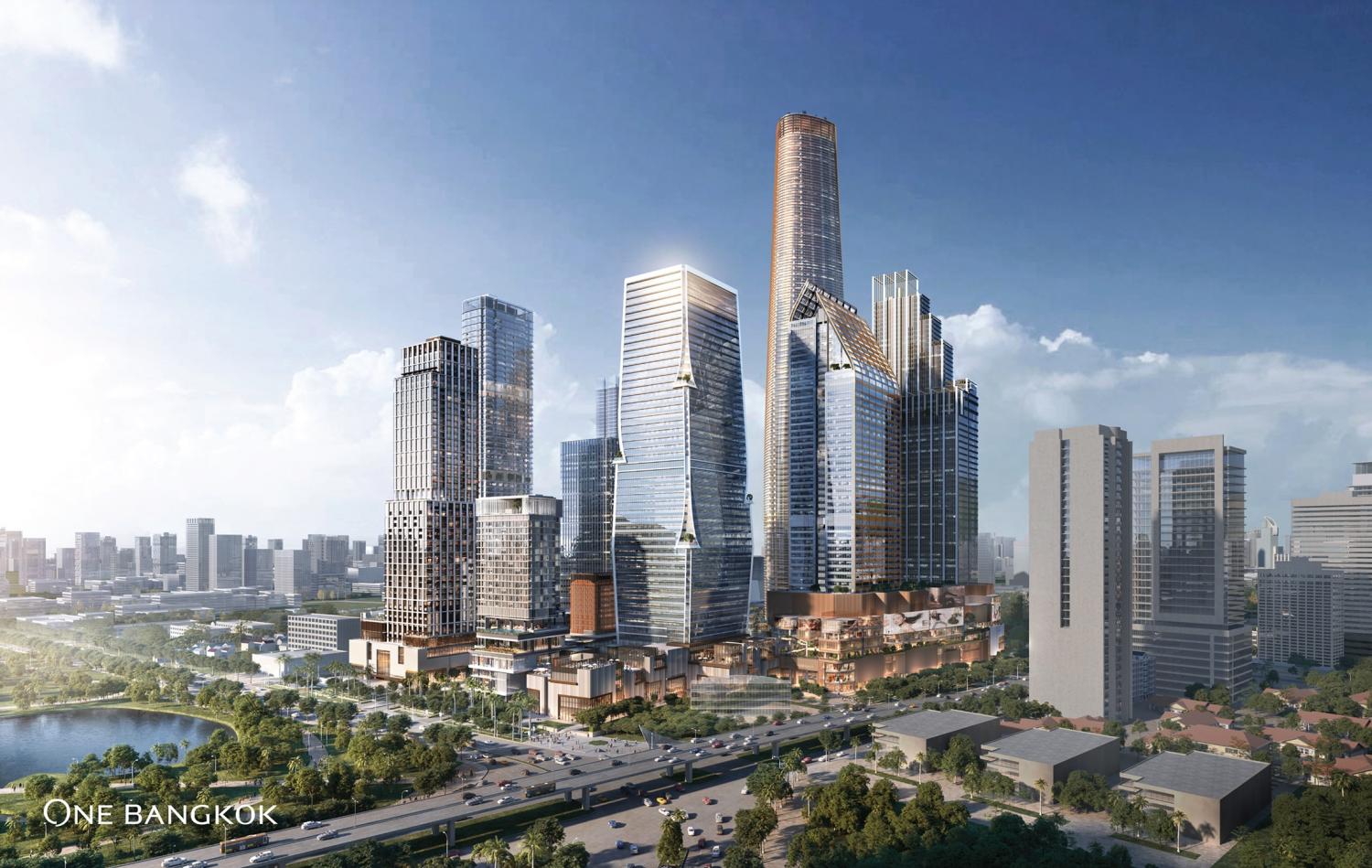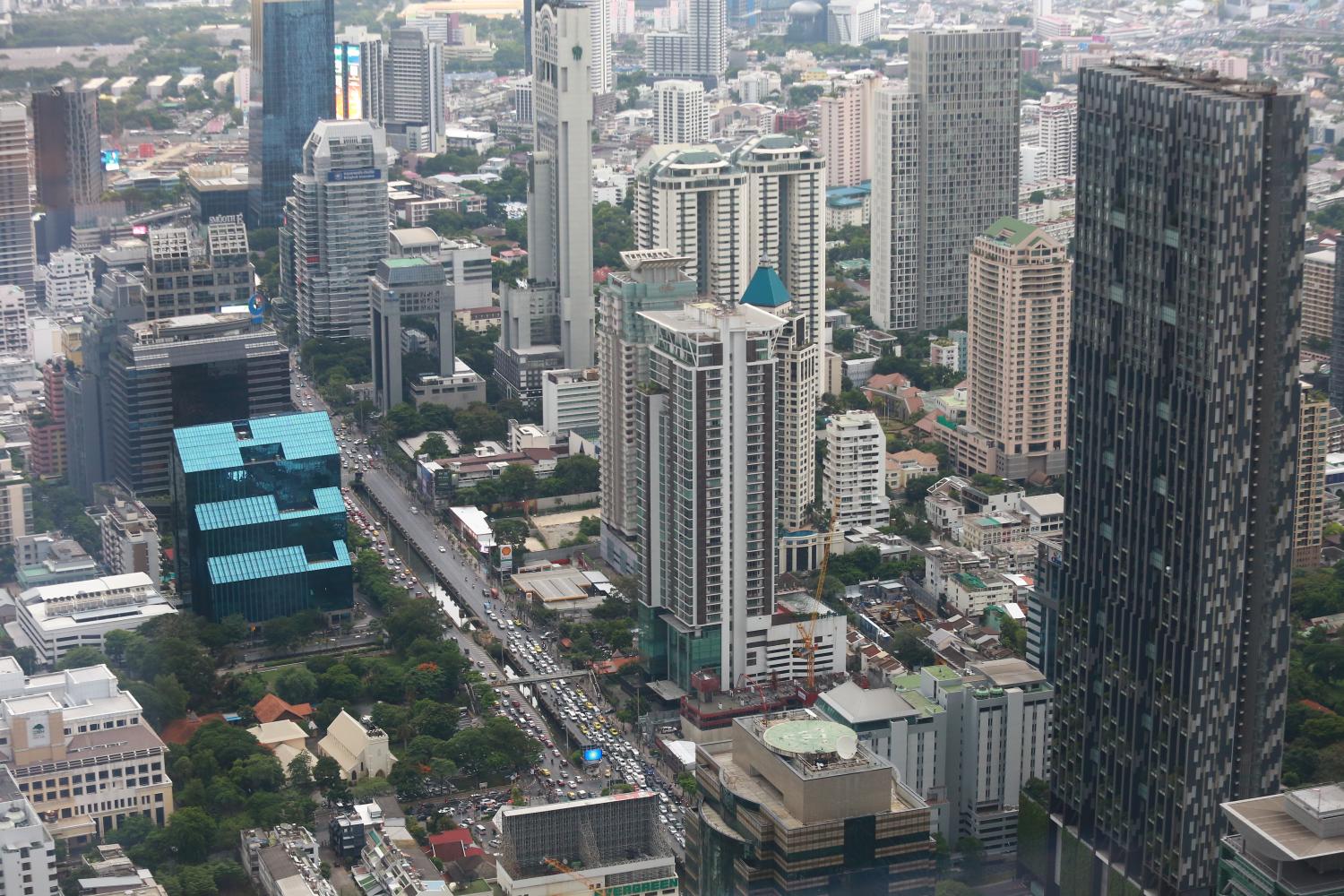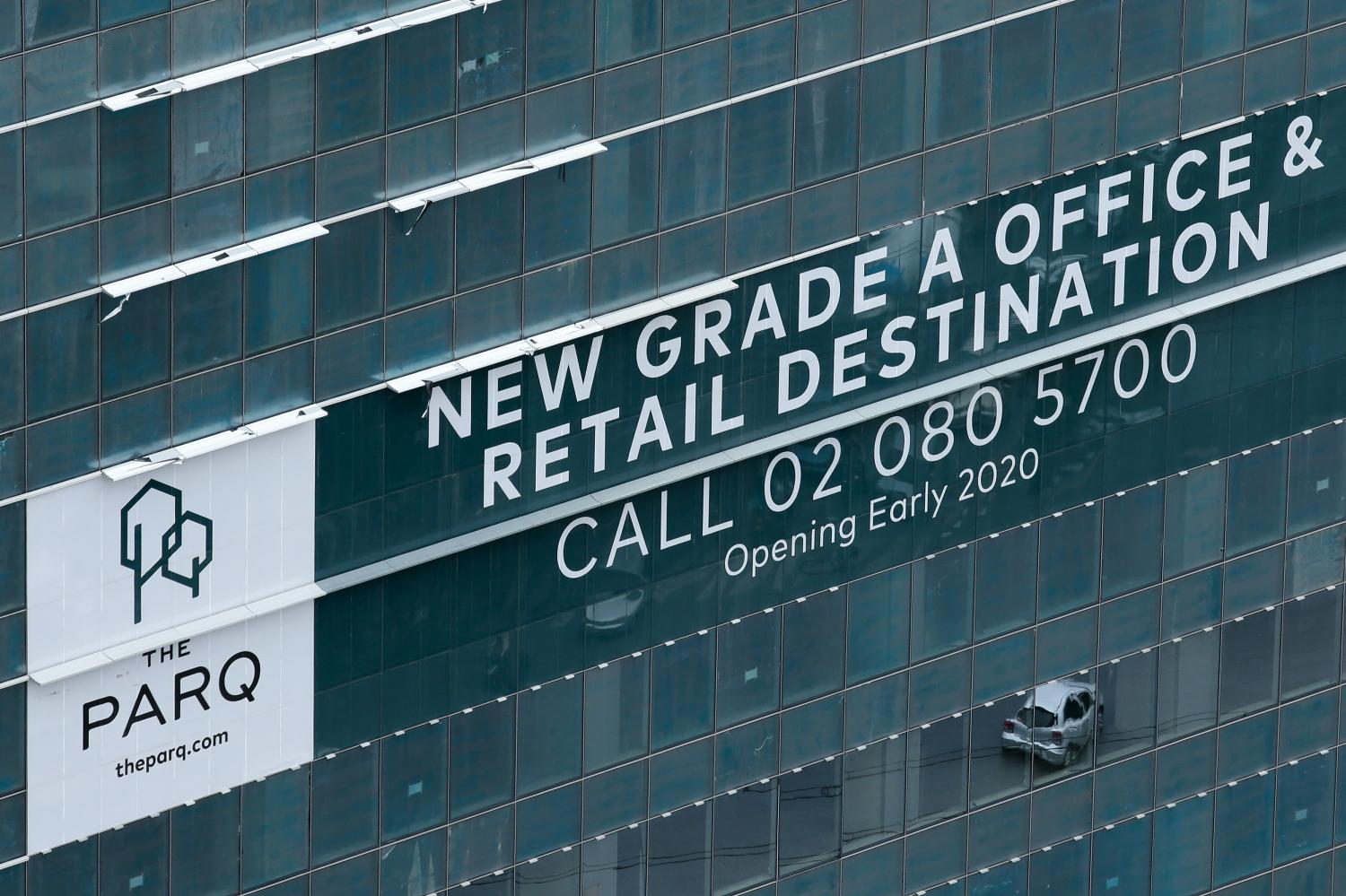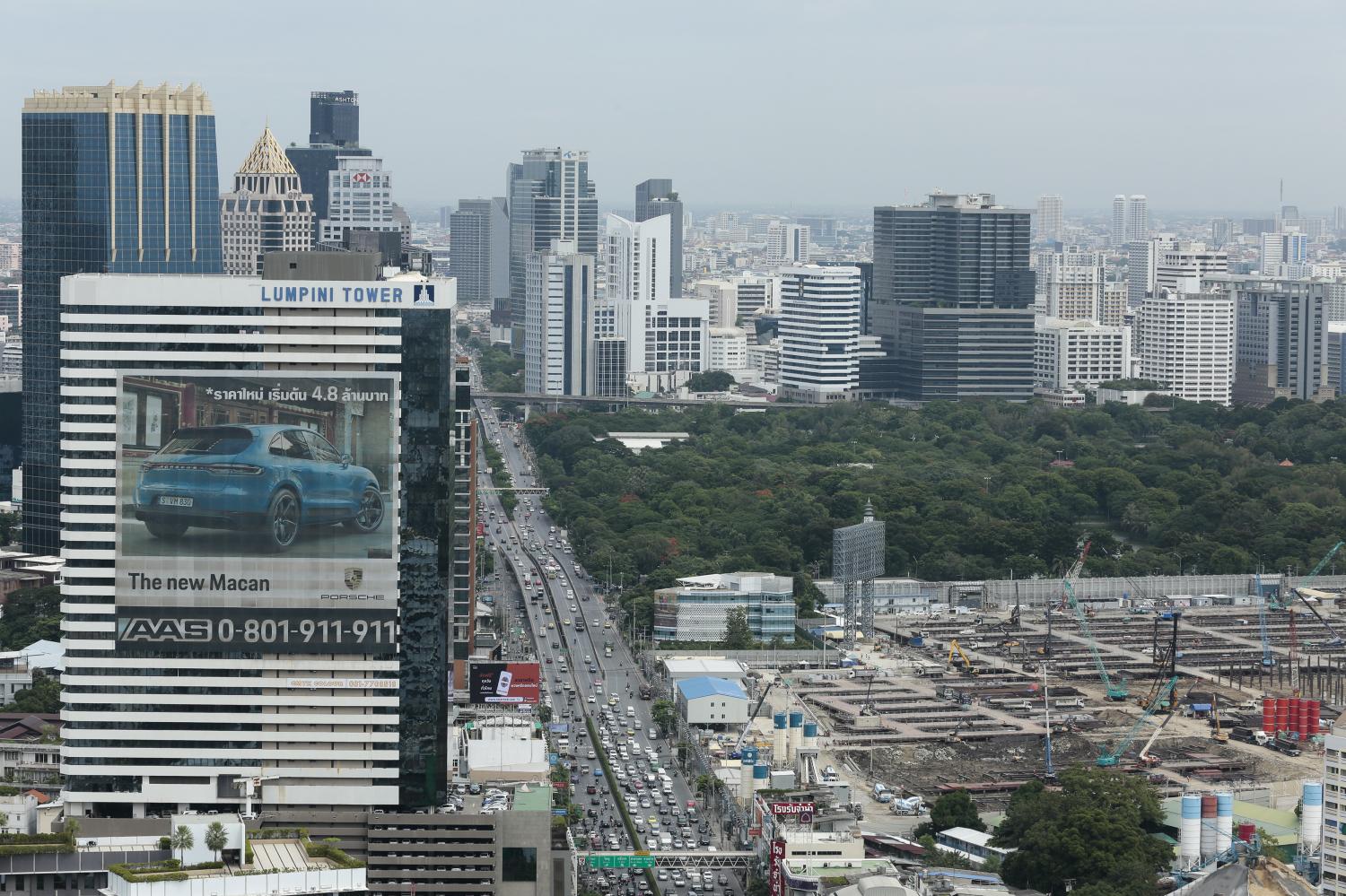
Despite the coronavirus igniting the trend of remote working, analysts see minimal impact on office properties, saying the market can withstand the pandemic with more stringent safety and hygiene standards.
Suphin Mechuchep, managing director of property consultant JLL, acknowledged that the outbreak affected the way of life and work, with consequences to be felt for years to come.
"Remote working, online shopping, deglobalisation of supply chains, sustainability initiatives and integration of technology could all be fundamentally altered by the global health crisis," she said.
JLL predicts more corporate occupiers and individual users seeking additional levels of safety and stricter hygiene standards from the properties they use or visit.
For any office building, additional services such as temperature checks, hand sanitising and third-party certifications proving reliable health and safety protocols are the fundamental requirements clients expect.

TECH IS COMING
Mrs Suphin said the outbreak is also speeding up adoption of automation and technology, particularly when users opt for minimising in-person interactions at a property where they live, stay or work.
Touchless technology could become a new standard in the not-too-distant future of real estate, she said.
"A number of unprecedented practices have been introduced in the real estate market," Mrs Suphin said. "While some of these may not last past the crisis, many are here to stay."
Aliwassa Pathnadabutr, managing director of property consultant CBRE Thailand, said business will gradually recover after the initial stages of reopening, provided that restrictions are not imposed.
"A combination of working from home and the office will continue for many companies," she said. "Site visits from prospective tenants will be more active, but any transactions requiring inspection by overseas clients or managers will be put on hold."
There will be more flexible workplaces with a mixture of head office and co-working spaces, as well as work-from-home options, Mrs Aliwassa said.
Landlords are poised to offer flexible lease terms and conditions, often tailored to tenants, she said.
"The trend of densification -- more people in less space -- may be reconsidered, replaced by new designs to leave more space per person," Mrs Aliwassa said. "Tenants will focus on air quality and filtration, not only because of Covid-19 but also seasonal PM2.5 pollution.
"After the virus, some business functions can partially adapt to a work-from-home policy. Virtual meetings via video conference and flexible, agile workplaces will become normal."
The office development trend will include investment in technology to support remote work and taking care of health, safety and security. Space planning and activities will focus more on personal areas rather than common space.

An aerial view of high-rise buildings in Bangkok's Sathon area. Somchai Poomlard
HOME NOT FOR EVERYONE
While working from anywhere is the trend, Mrs Aliwassa said full-time work from home will slowly dissipate as people feel compelled to go to an office.
This position is supported by Apichart Chutrakul, chief executive of SET-listed developer Sansiri Plc, saying Thais prefer to work in the office rather than at home because they like social gathering.
"Working from home, some employees are more efficient," Mr Apichart said. "But some cannot work from home because it's not fun or productive."
Yupa Sathienpabayut, JLL's head of office leasing, said that even before Covid-19 there was a lot of debate over whether remote work would be more productive.
"The outbreak forced corporations to experiment with alternative workplace solutions, which have now become a new practice," she said.
Many office renters discovered that remote arrangements were workable for a number of functions, but also generally led to less collaboration, Ms Yupa said.
"Remote work will maintain a certain level of popularity, but it will not be as widely adopted in the future as during the Covid-19 crisis," she said.

A sign advertises new grade-A offices at The PARQ office complex situated at the Rama IV-Klong Toey intersection. Patipat Janthong
MORE SPACES
Lionel Lee, chief executive of SET-listed developer Raimon Land Plc, said media reports showed that Facebook, Twitter and other tech firms viewed working from home as normal.
"But even tech firms admitted this is not for new employees, who need an introduction in the office," he said. "Offices are still a basic need. We don't think the size will shrink, because office workers will need more than two metres of space between each other."
Mr Lee said ample research shows that some office workers need more space to keep physical distancing.
Withawat Koottatep, executive vice-president for commercial development at Golden Land Property Development, said two metres of physical distance will become a new rule for working even after the virus.
"Earlier office space was reduced from 10 to seven square metres per person to save costs, but in the virus era more space is a requirement," he said. "Flexible and adaptable areas will be a future trend."

Construction continues at One Bangkok. Patipat Janthong
HEALTH AND WELL-BEING
Mrs Aliwassa said office occupiers are paying rent not only for the location, but also for the lifestyle and value-added services from the property.
"Office landlords need to understand the market trends and ensure that their product matches tenant requirements," she said. "With a spike of new supply in the market, office buildings will need to provide services beyond just space for rent."
Mrs Aliwassa suggested existing landlords consider renovating, upgrading and reconfiguring their buildings to answer client expectations.
"Tenants will want better air quality with systems that are certified, monitored and measured to assure them of the quality," she said. "The virus presented some challenges in terms of changes in use of space, but it also acted as a catalyst for office landlords and occupiers to quickly explore new workplace strategies that will increase the versatility of office spaces in the future."
Health and wellness are among the key concerns for occupiers, both on a larger scale and within the occupied space itself.
Ms Yupa of JLL said the office market is in a period of moderating demand, with short-term cost reduction overtaking long-term planning.
"Many businesses have delayed real estate decisions," she said. "Some companies, especially those in industries that are suffering, have held back relocation and expansion plans."
Ms Yupa said it was too early to make bold predictions in terms of a shift in the space required by corporations coming out of the crisis.
The physical office will take centre stage in enabling interaction, collaboration and ultimately employee health, well-being and productivity.
"The concept of sustainability and green buildings is now established in Thailand," Ms Yupa said. "But only a handful of property developments in Bangkok have applied for the WELL Building Standard."
WELL is a certification focused on the health and wellness of workers in commercial buildings and offices, regarding every aspect from physical health and premium food offerings to mental health policy.
"The outbreak has drawn more developers to pay attention to WELL, which is expected to gain popularity and become a new standard for the Bangkok office market in the near future," Ms Yupa said.

An aerial view of skyscrapers in Bangkok's Sathon area. Patipat Janthong